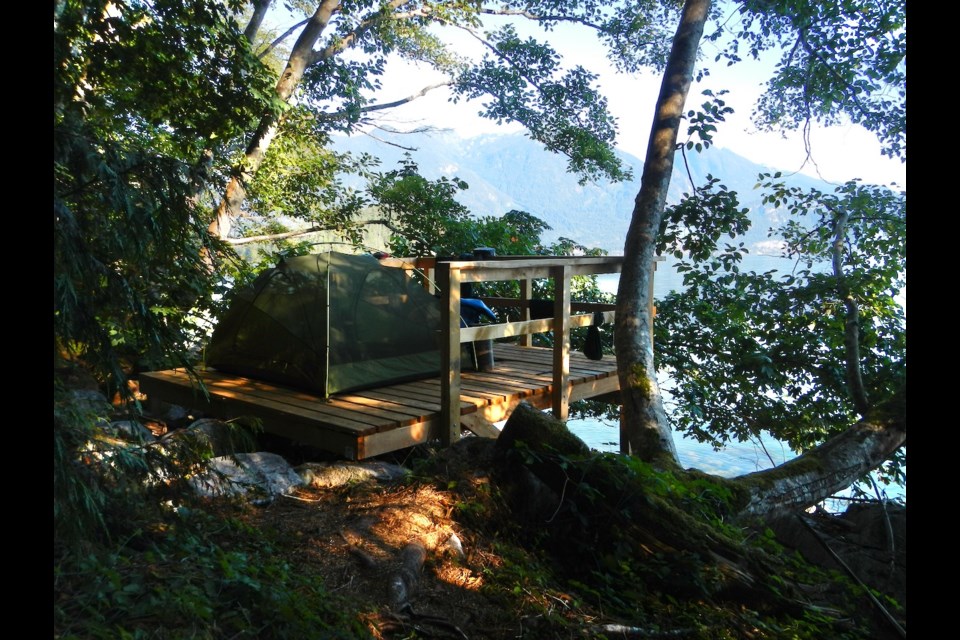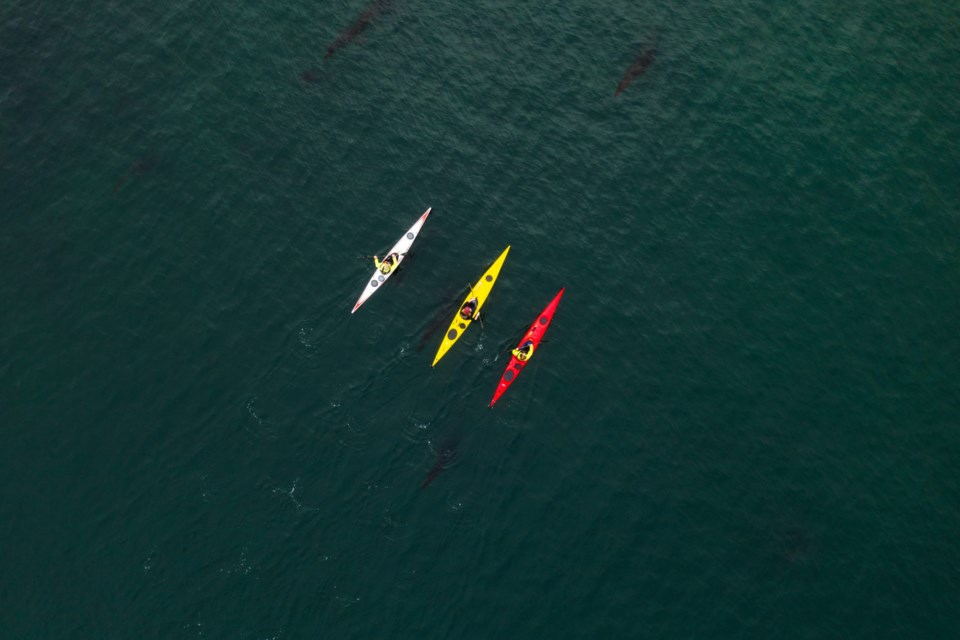BC Marine Trails has released a series of educational videos aimed at helping people enjoy British Columbia’s coastline responsibly.
The videos are based on the Marine Trails Code of Conduct, which was introduced in 2018 to guide recreational users on minimizing their impact on the environment.
This code offers tips and guidelines on everything from managing campfires to visiting First Nations territories with respect and reducing disturbances to wildlife.
“These videos are designed to provide practical, easy-to-understand advice that anyone can follow,” said Sam Cutcliffe, communications and stewardship co-ordinator for BC Marine Trails.
“Our goal is to make sure that everyone who enjoys B.C.’s coast does so in a way that preserves its natural beauty and ecological health for future generations.”
According to BC Parks, over 2.4 million people (about the population of Vancouver) visit British Columbia’s marine parks each year, a number that continues to grow as more people seek outdoor activities.
“We want it to become the norm for marine recreationists—whether boaters, sailors, paddleboarders, kayakers, or hikers—to follow practices that protect these sites and the coastline for future generations,” Cutcliffe said.
First Nations First: Guiding the Way
An important part of the Marine Trails Code of Conduct is making sure First Nations' perspectives are included. British Columbia is home to 74 coastal First Nations, each with unique cultural practices and environmental concerns. The code aims to respect these differences by including their voices in its development.
“Environmental stewardship by First Nations on their territories has existed for millennia and continues to be crucial,” Cutcliffe said. “We want to make sure we’re amplifying the voices of those Nations and giving them the power to share how they want recreationists interacting with their specific Nation.”
To help with this, the Marine Trails website now features a detailed map of over 1,400 marine sites along the B.C. coast. This map provides guidelines from each Nation on how to respectfully visit their lands.
Guidelines Offer General Advice
The Marine Trails Code of Conduct is designed to provide broad guidelines for the entire B.C. coast, rather than being tailored to specific First Nations. “While the code provides general guidelines, it encourages recreationists to research whose territory they are visiting and seek specific guidance from that Nation,” said Cameron Dalinghaus, BC Marine Trails' First Nations liaison in an email.
Dalinghaus acknowledged that the code doesn’t address the unique concerns of each Nation but emphasized BC Marine Trails' openness to developing more customized guidelines.
“The specific environmental and cultural concerns of the Sḵwx̱wú7mesh Úxwumixw (Squamish Nation), for example, have not been incorporated into our code of conduct,” he said. “However, we remain open to discussions about specific directives for Sḵwx̱wú7mesh territory and are committed to integrating their management directives into our outreach efforts.”
A significant aspect of the code is promoting camping at approved locations where local First Nations have granted access.
“The Howe Sound Marine Trail sites, for example, have received Sḵwx̱wú7mesh approval for use and publication,” Dalinghaus explained. “This trail was built in collaboration with the Sḵwx̱wú7mesh Nation, BC Parks, and BC Marine Trails.”
The Road Ahead
Despite the efforts to spread these guidelines, measuring their impact remains challenging. “It’s tough to quantify,” Cutcliffe said. “We’re not like BC Parks, monitoring each site—we don’t have the resources for that. But getting the guidelines out there is the first step.”
As B.C.’s marine trails continue to attract more visitors, the need for responsible recreation practices will only grow.
According to BC Marine Trail, they are committed to evolving the code of conduct to meet these challenges, with ongoing collaboration with Indigenous communities.
“This is an ongoing process,” Cutcliffe said. “We’re constantly learning and adapting, making sure our guidelines reflect the best available knowledge—both scientific and Indigenous.”
Bhagyashree Chatterjee is The Squamish Chief’s Indigenous and civic affairs reporter. This reporting beat is made possible by the Local Journalism Initiative.



.jpg;w=120;h=80;mode=crop)

